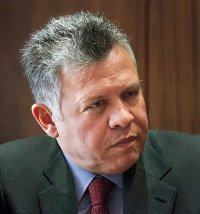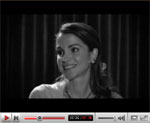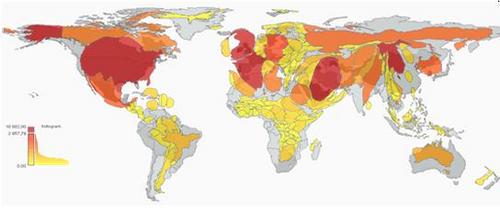 A feature on The Atlantic about King Abdullah II of Jordan, “The Modern King in the Arab Spring”, was all the fuss on Tuesday all over Jordan’s news sites and on social media.
A feature on The Atlantic about King Abdullah II of Jordan, “The Modern King in the Arab Spring”, was all the fuss on Tuesday all over Jordan’s news sites and on social media.
As someone who lived, studied, worked and got married in Jordan; there’s always a little place in my heart for the country, and I tend to try and catch up on what’s going on there every now and then.
I only got to read the full feature, which is pretty long, yesterday; and whoa, was that something!
The full feature can be found here “The Modern King in the Arab Spring”, and for some quick highlights, you can check out the New York Times’ article.
The article basically lays out what the king thinks of the internal players in Jordanian politics, the tribal leaders (whom he calls Dinosaurs), the General Intelligence Department (GID), the royal family, regional leaders, the Muslim brotherhood and more, painting them all mostly in a negative light.
Now all of these things aren’t that shocking in the sense that the king or anyone else thinks that way, heck I agree with most of the opinions in the article; what’s more shocking is that they’re released and made public this way, bypassing any of the usual PR or diplomacy filters we’ve gotten so used to from political leaders and their offices.
After the article was published, the Royal Hashemite Court responded saying that the article included “many fallacies and took matters out of their correct context.” Jeffrey Goldberg, who wrote the piece, confirmed on Twitter that both he and the royal court have recordings of the interviews, and that they’re well in context.
All that in mind, I’m going to lean more towards thinking that the Royal Hashemite Court is just scrambling to contain and get rid of this internal nightmare situation, while the article remains mostly accurate.
Many people think that maybe the king’s comments were made off the record, and they do really seem like things that would be said off the record, rather than on the record; but I don’t think that’s the case, I actually think the king intended these comments to come out exactly the way they did.
Why he’d do that? What exactly the reasoning and objective behind it is, isn’t that clear; but what’s for sure is it’s quite a gamble.
Continue reading King Abdullah Of Jordan: Monarch In The Middle Of Controversy

 Queen Rania of Jordan, has launched a
Queen Rania of Jordan, has launched a 